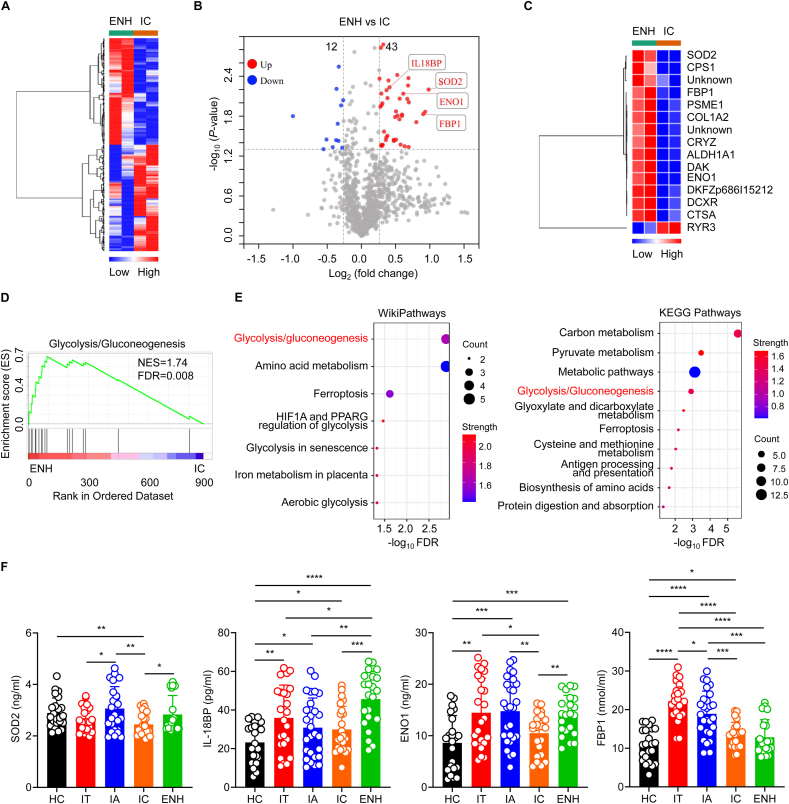Fig. 6.
Proteomic characterization of ENH phase versus IC phase of chronic HBV infection. (A) Heatmap of serum proteomic profiles in ENH and IC phase patients. (B) Volcano plot representing the up- or down-regulated protein abundance changes in the pooled serum between ENH and IC phase patients (1.2-fold change threshold and P < 0.05). (C) Heat map representation of differentially expressed proteins (fold change>1.5, P < 0.05) between ENH and IC phase patients. (D and E) GSEA, WikiPathways, and KEGG pathway analyses of the 55 differentially expressed proteins were performed to evaluate enriched signaling pathways between ENH and IC phase patients. (F) SOD2, IL-18BP, ENO1, and FBP1 expression in healthy controls and different phases of chronic HBV infection as assessed by ELISA. HC, healthy controls (black, n = 23); IT, immune-tolerant phase (red, n = 24); IA, immune reactive HBeAg-positive phase (blue, n = 27); IC, inactive HBV carrier state phase (orange, n = 23); ENH, HBeAg-negative chronic hepatitis B phase (green, n = 22). Each circle represents an individual sample. Data are presented as the mean ± SD. Unpaired t-test. ∗p < 0.05, ∗∗p < 0.01, ∗∗∗p < 0.001, ∗∗∗∗p < 0.0001.

